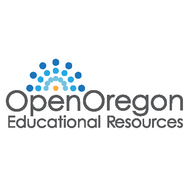
(View Complete Item Description)
Latin America covers part of North America, South America and the West Indies. It stretches from Atacama desert to rugged highlands and Alpine glaciers of the Andes mountains, from the Rio Grande to Tierra del Fuego.The fertile plains of the Pampas is one of the world's richest agricultural regions. The Amazon Basin is the largest and wettest lowland in the world. Culturally, Latin America is a great mixture of European, indigenous and African cultures.
In this course, we will examine the peoples and places of Latin America from a geographical perspective. We will explore the geographical dimensions of economic, cultural, political, and physical forces influencing Latin America as a region. We will have a mixture of thematic and regional approaches to study the concepts and look into various physical and historical processes that have shaped dynamic and diverse cultural landscapes. We will study contemporary environmental and developmental issues, trends in migration, agricultural change, and globalization to understand Latin America's position in the global economy.
Learning Outcomes:
*Analyze and articulate geographic concepts related to the geography of Latin America, its physical environment, peoples, cultures, and history.
*Analyze changing political and economic relationships between the United States and countries in Latin America in order to be a more informed and engaged global citizen.
*Interpret maps, graphs, and visuals as tools for analyzing the distribution patterns of phenomena and understanding their importance.
*Evaluate how changing cultural, social, political, and economic characteristics of Latin American countries influence internal strife and external intervention.
*Understand the complexities that contribute to the social inequality, political conflict, and environmental concerns prevalent in some Latin American countries and discuss possible solutions.
Material Type:
Full Course,
Homework/Assignment,
Syllabus
Authors:
Dimitar Dimitrov,
Tuba Kayaarasi




















